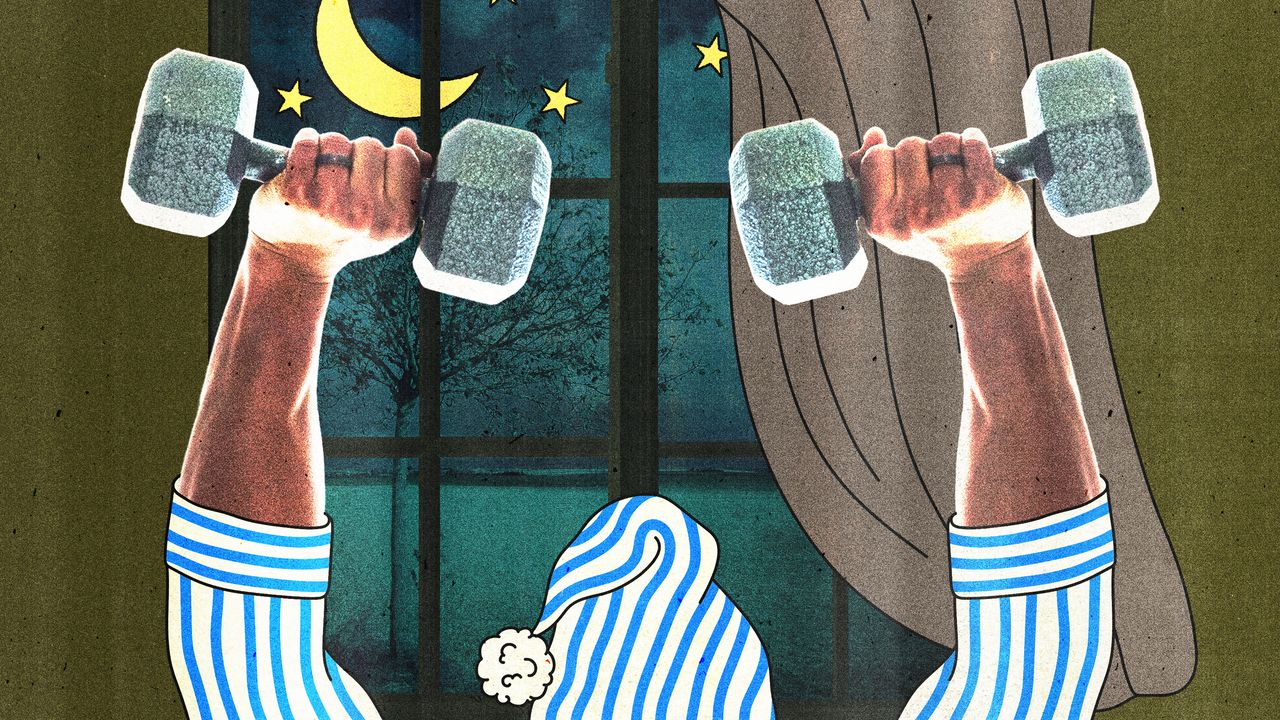“Although exercise tires you out, the stimulation of your sympathetic nervous system provides an energy boost,” says Meurling. “So although you may fall asleep that sleep could be delayed or the quality might be poorer.”
Exercise during the day, he says, can assist with a good night’s sleep.
“Exercise does help in a number of ways,” says Meurling. “It’s good for anxiety, and exertion during the day stimulates melatonin production, one of the important regulators in your brain.” Melatonin is a hormone that rises at night and drops during the day and is often prescribed as a supplement for people who can’t sleep.
But the real key to exercise and sleep timing may be not so much when you do it, but how regular you are about when you do it. Sleep scientists have a name for this: “Zeitgebers” or time givers. Discovered in the 1950s, Zeitgebers are the cues that let your body know when to wake and when to drop off. The biggest and most powerful time giver is light but right up there, running a close second place, is exercise.
Bottom line: There is no one-size-fits-all best time. But by consistently exercising at the same time (roughly) every day you will be able to train your internal clock to deliver max vitality and the ability to get some rest when you need it.
This story originally appeared in British GQ.

